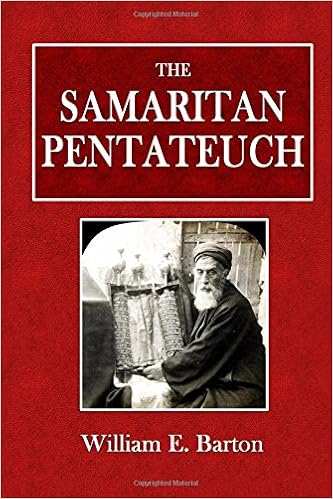Book Reading Thread!
- Thread starter canada-man
- Start date
You are using an out of date browser. It may not display this or other websites correctly.
You should upgrade or use an alternative browser.
You should upgrade or use an alternative browser.
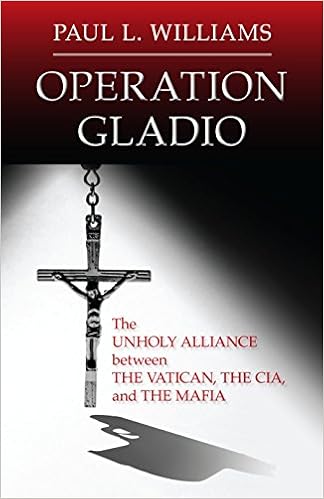
This disturbing exposé describes a secret alliance forged at the close of World War II by the CIA, the Sicilian and US mafias, and the Vatican to thwart the possibility of a Communist invasion of Europe. Journalist Paul L. Williams presents evidence suggesting the existence of “stay-behind” units in many European countries consisting of five thousand to fifteen thousand military operatives. According to the author’s research, the initial funding for these guerilla armies came from the sale of large stocks of SS morphine that had been smuggled out of Germany and Italy and of bogus British bank notes that had been produced in concentration camps by skilled counterfeiters. As the Cold War intensified, the units were used not only to ward off possible invaders, but also to thwart the rise of left-wing movements in South America and NATO-based countries by terror attacks.
Williams argues that Operation Gladio soon gave rise to the toppling of governments, wholesale genocide, the formation of death squads, financial scandals on a grand scale, the creation of the mujahideen, an international narcotics network, and, most recently, the ascendancy of Jorge Mario Bergoglio, a Jesuit cleric with strong ties to Operation Condor (an outgrowth of Gladio in Argentina) as Pope Francis I.
Sure to be controversial, Operation Gladio connects the dots in ways the mainstream media often overlooks.

Edge of Apocalypse
In this adrenaline-fueled political thriller laced with End Times prophecy, Joshua Jordan, former U.S. spy-plane hero turned weapons designer, creates the world’s most sophisticated missile defense system. But global forces conspire to steal the defense weapon, and U.S. government leaders will do anything to stop the nation’s impending economic catastrophe—including selling-out Jordan and his weapon. As world events begin setting the stage for the “end of days” foretold in Revelation, Jordan must consider not only the biblical prophecies preached by his wife’s pastor, but the personal price he must pay if he is to save the nation he loves.
Thunder of Heaven
As world events begin setting the stage for the “end of days” foretold in Revelation, Joshua Jordan must weigh the personal price he must pay to save the nation he loves.
Brink of Chaos
Joshua Jordan remains in Israel during his self-imposed “exile” out of the reach of U.S. authorities who have trumped-up false criminal treason charges against him. As corruption in high government offices threaten to block the election of a worthy presidential candidate by all means necessary—including the unthinkable—Israel’s leadership is tempted to sign a “peace” proposal initiated by the UN under the authority of Coliquin. Are the recurring dreams Joshua has had about the coming rapture from God. And is the end sooner than anyone expects?
Mark of Evil
Ethan March, Jimmy Louder, and Rivka Reuban have been left behind in a world that is rapidly coming under the influence of the Antichrist. Technology is being used to control and dominate those who resist the Antichrist’s reign of evil. Each day, as more and more biblical prophecies are fulfilled, Ethan and the others in the Remnant struggle to survive in a world of ever-increasing chaos and desperation.When the forces of evil attempt to use the world’s most powerful information system for increasingly sinister purposes and eliminate everyone who gets in their way, it’s up to Ethan and the Remnant to subvert their purposes and instead use them for the glory of God.
My all-time favs..
The 1611 King James Bible Oxford edition... The true word of God
The Power of Your Subconscious Mind by Dr. Joseph Murphy... A great beginner read
Creative Visualization by Shakti Gawain... The next step ..visualize
The Secret by Rhonda Byrne... A great all-around quick read.. great info follow it
The Master Key System by Charles F Haanel... Once banned, another great one... It has mental assignments at each chapter end
And my two all-time(less) faves in a league on a plain of their own
Seth Speaks the Eternal Validity of the Soul by Jane Roberts... Just mind-blowing what more can I say
The Nature of Personal Reality, a Seth book, by Jane Roberts... This one is just another mind blower, timeless amazing, read it slow and take your time with both of these books
The last two should be required reading by everyone in my opinion
Research all these books, and remember your thoughts and beliefs create your reality. Visualize it...materialize it!........and hobby on brothers!
The 1611 King James Bible Oxford edition... The true word of God
The Power of Your Subconscious Mind by Dr. Joseph Murphy... A great beginner read
Creative Visualization by Shakti Gawain... The next step ..visualize
The Secret by Rhonda Byrne... A great all-around quick read.. great info follow it
The Master Key System by Charles F Haanel... Once banned, another great one... It has mental assignments at each chapter end
And my two all-time(less) faves in a league on a plain of their own
Seth Speaks the Eternal Validity of the Soul by Jane Roberts... Just mind-blowing what more can I say
The Nature of Personal Reality, a Seth book, by Jane Roberts... This one is just another mind blower, timeless amazing, read it slow and take your time with both of these books
The last two should be required reading by everyone in my opinion
Research all these books, and remember your thoughts and beliefs create your reality. Visualize it...materialize it!........and hobby on brothers!
Last edited:

It has always been well known to Roman Catholics that the Jesuit General is referred to as “the Black Pope”. Jesuit priest Chris Chatteris, writing in a South African newspaper in early 2008 after the new general’s election, did what Jesuits do best: he put a good spin on the title. This is what he wrote:“Take the cliché about the Jesuit General being the ‘black Pope’. This is explained in some papers with sartorial superficiality as being because the Pope wears white and the Jesuit General black. Deep analysis. The tag’s origins actually refer to the fact that both men are elected for life. And the point of the ‘black Pope’s’ lifelong term is not to imitate the ‘white Pope’. It is about the need that the Jesuit founder, St Ignatius of Loyola, felt for continuity of government and the avoidance of frequent meetings to elect new superiors.” Nice try, Sir. That’s a whitewash. Here’s the real reason: “In Roman Catholic circles it is well known that the Black Pope is the term used for the General of the Jesuits. As the Pope is always robed in white, and the General in black, the contrast is obvious. But those Romanists who do not greatly love the Jesuits, and their number is not limited, use the term as indicating that the Black Pope rules the White Pope.” He is called this because he is known to be the real power behind the Vatican throne, rather than the pope!

amazon reviewer
thechrisaccount
5.0 out of 5 starsOne of the best books on the Roman Catholic Church
November 10, 2010 - Published on Amazon.com
Format: Hardcover
As someone who has studied the Dark Ages, the Reformation, and the history of the conflict with Rome against the true Gospel, I can testify that this is one of the best books ever written on Rome. But what this author does, which is so needed, is to show the influence of the Roman Church in the modern world. He cites papal bulls, encyclicals, and one source after another, showing the manipulations of the Catholic Church in modern times. Robbins proves beyond any doubt that Rome has continued to pursue its ambition of world domination, in spite of all the media propaganda to the contrary, and the opinion of blinded evangelicals who seem to believe that the pope is now an "angel of light" or that Catholicism is simply another denomination of Christianity.
This is a great book for research and reference, very meticulously put together. If you are someone who has been following the trail of historic evidence to figure out why the Freemasons, the Skull and Bones, and the Illuminati seem to get blamed for everything -- while most researchers ignore the Vatican and the Jesuit Order -- then this book should be in your library. The author proves that the cry of the Reformers against the Great Harlot of Revelation 17 was not in vain. The Bible gives no uncertain sound as to the danger of the city on seven hills, and neither does this excellent book.
Don't usually read many novels but this was excellent.
Member of Russian aristocracy sentenced to house arrest in a Moscow hotel by the Bolsheviks shortly after the Russian revolution, where he spends the next 30+ years.

Member of Russian aristocracy sentenced to house arrest in a Moscow hotel by the Bolsheviks shortly after the Russian revolution, where he spends the next 30+ years.

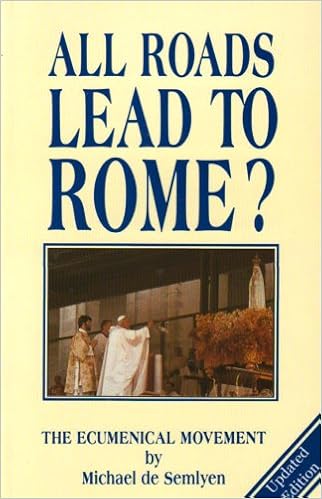
amazon reviewer
This book deserves 6 stars if it were possible! While it is a bit dated ( published in 1993 ), it is jam packed full of information that every Christian, and even those who aren't Christians needs to read. There is little if any "fluff" of personal opinion or musings in this book. It is extremely well researched and contains invaluable information that we all need to educate ourselves with. I would recommend this book in a heartbeat. I am thinking of purchasing a few more copies to hand out to anyone interested. It contains loads of factual details about how the Vatican, most Catholic and Protestant churches, the New Age Movement and the New World Order with its coming One World Religion are all moving forward to a merging in the very near future. The subtlety of the gradual creep of Roman Catholicism into traditionally fundamental Protestant churches, and movements is proven beyond a doubt. I have seen this truth taking place myself in churches as the vast majority of protestants move further away from the true message of the simplistic gospel of Jesus Christ. That gospel being that of salvation through faith alone in Christ alone taught by the word of God alone. Instead they are eagerly moving toward a Socialist, feel good, communitarian, church of universalism where the pastor and the church institution replaces Jesus Christ as the focus of "the faith". This is a MUST READ.
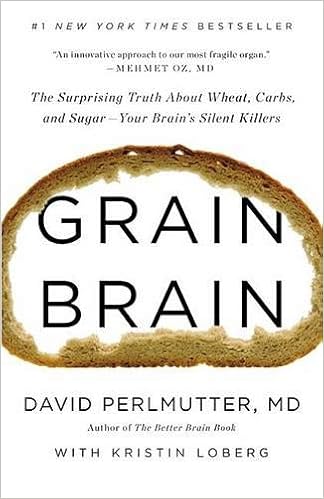
A #1 New York Times bestseller--the devastating truth about the effects of wheat, sugar, and carbs on the brain, with a 4-week plan to achieve optimum health.
Renowned neurologist David Perlmutter, MD, blows the lid off a topic that's been buried in medical literature for far too long: carbs are destroying your brain. And not just unhealthy carbs, but even healthy ones like whole grains can cause dementia, ADHD, anxiety, chronic headaches, depression, and much more. Dr. Perlmutter explains what happens when the brain encounters common ingredients in your daily bread and fruit bowls, why your brain thrives on fat and cholesterol, and how you can spur the growth of new brain cells at any age. He offers an in-depth look at how we can take control of our "smart genes" through specific dietary choices and lifestyle habits, demonstrating how to remedy our most feared maladies without drugs. With a revolutionary 4-week plan, GRAIN BRAIN teaches us how we can reprogram our genetic destiny for the better.
GRAIN BRAIN is a #1 New York Times bestseller and a finalist for a 2013 Books for a Better Life award.

The Plot Against America is a novel by Philip Roth published in 2004. It is an alternative history in which Franklin D. Roosevelt is defeated in the presidential election of 1940 by Charles Lindbergh. The novel follows the fortunes of the Roth family during the Lindbergh presidency, as antisemitism becomes more accepted in American life and Jewish-American families like the Roths are persecuted on various levels. The narrator and central character in the novel is the young Philip, and the care with which his confusion and terror are rendered makes the novel as much about the mysteries of growing up as about American politics. Roth based his novel on the isolationist ideas espoused by Lindbergh in real life as a spokesman for the America First Committee, and on his own experiences growing up in Newark, New Jersey. The novel depicts the Weequahic section of Newark which includes Weequahic High School from which Roth graduated.

Feminist ideology has seeped into every aspect of our society. This book is a sobering true story of tragedy, suicide, and murder directly caused by feminism. It not only chronicles true stories that show feminism's discrimination against men, it's backed by peer-reviewed research. Additionally, it includes investigative journalism that proves feminism was never about equality. The reality is that feminism doesn't just victimize men. It also victimizes women, children, families, and communities.
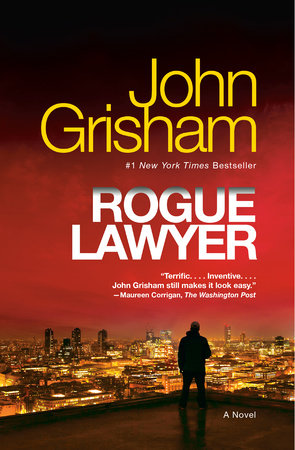
#1 NEW YORK TIMES BESTSELLER • NAMED ONE OF THE BEST BOOKS OF THE YEAR BY THE WASHINGTON POST AND NPR • Featuring one of John Grisham’s most colorful, outrageous, and vividly drawn characters yet, Rogue Lawyer showcases the master of the legal thriller at his very best.
On the right side of the law—sort of—Sebastian Rudd is not your typical street lawyer. His office is a customized bulletproof van, complete with Wi-Fi, a bar, a small fridge, and fine leather chairs. He has no firm, no partners, and only one employee: his heavily armed driver, who also so happens to be his bodyguard, law clerk, confidant, and golf caddie. Sebastian drinks small-batch bourbon and carries a gun. He defends people other lawyers won’t go near: a drug-addled, tattooed kid rumored to be in a satanic cult; a vicious crime lord on death row; a homeowner arrested for shooting at a SWAT team that mistakenly invaded his house. Why these clients? Because Sebastian believes everyone is entitled to a fair trial—even if he has to bend the law to secure one.

Those who would stifle free speech are drawing ever closer to home. For the forces of tyranny – whether communist, fascist, globalist, or Islamic – know that unfettered free speech is the front line of defense against subjugation of the individual to the domination of the collective. Constraining free speech is thus always the first step to crushing the human right to freedom of belief and conscience.
Canadian Christine Douglass-Williams, who writes for the online publication Jihad Watch, a project of the David Horowitz Freedom Center in California directed by Robert Spencer, knows this full well and, unfortunately, first-hand. Douglass-Williams, an immigrant to Canada from the Caribbean nation of Trinidad and Tobago, served as an appointed Director on the Board of Directors for the Canadian Race Relations Foundation (CRRF) from 2012-2017, when she was summarily removed under specious accusations of “Islamophobia.” As a visible minority in Canada herself, Douglass-Williams is deeply dedicated to principles of individual liberty, equality for all before the law, and defense of the rights of minority populations. And yet, because she wrote (on her own time) at Jihad Watch to warn her adopted country and the West in general of the documented, self-avowed doctrinal commitment of Islamic Law (shariah) to ban and punish harshly the exercise of just such human rights, the Queen’s Privy Council on the advice of Canada’s then-Heritage Minister Melanie Joly, terminated her appointment as a Governor in Council Appointee on December 20, 2017.
Deeply concerned about the precipitous slide of our northern neighbor towards authoritarianism, especially with regard to free speech about the alarming influence of the jihadist Muslim Brotherhood and the broader global Islamic Movement on Canadians’ ability to enjoy the intrinsic human rights guaranteed to them in the Canadian Charter of Rights and Freedoms, the Center for Security Policy asked Christine Douglass-Williams to document her experiences. This monograph, Fired by the Canadian Government for Criticizing Islam - Multicultural Canada: A Weak Link for Islamization, is her deeply personal account—but it is also something much more important. For while the arbitrary and discriminatory treatment of an individual Canadian citizen is a story worth telling in its own right, it is the broader implications for the future of free expression, free speech, and all other individual rights intrinsic to human beings everywhere, that makes Douglass-Williams’ work here so valuable.
I just finished The Last Lecture by Randy Pausch. He was a professor for many years, working with youth and he wrote the book to impart some of his knowledge to both his young children and others before he died of prostrate cancer.
Some of my favourite quotes are:
The Parent Lottery (Chapter 4)
My mother was a tough, old-school English teacher with nerves of titanium. She worked her students hard, enduring those parents who complained that she expected too much from kids. As her son, I knew a thing or two about her high expectations, and that became my good fortune.
My dad was a World War II medic who served in the Battle fo the Bulge. He founded a nonprofit group to help immigrants' kids learn English. And for his livelihood, he ran a small business which sold auto insurance in inner-city Baltimore. His clients were mostly poor people with bad credit histories or few resources, and he'd find a way to get them insured and on the road. For a million reasons, my dad was my hero.
When I was studying for my PHD, I took something called "the theory qualifier," which I can now definitively say was the second worst thing in my life after chemotherapy. When I complained to my mother about how hard and awful the test was, she leaned over, patted me on the arm and said, "We know just how you feel honey. And remember, when your father was your age, he was fighting the Germans."
No Job Is Beneath You (Chapter 51)
It's been well-documented that there is a growing sense of entitlement among young people today. I have certainly seen that in my classrooms.
So many graduating seniors have this notion that they should be hired because of their creative brilliance. Too many are unhappy with the idea of starting at the bottom.
After our ETC students were hired by companies for internships or first jobs, we'd often ask the firms to give us feedback on how they were doing. Their bosses almost never had anything negative to say about their abilities or their technical chops. But when we did get negative feedback, it was almost always about how the new employees were too big for their britches. Or that they were already eyeing the corner offices.
When I was fifteen, I worked at an orchard hoeing strawberries, and most of my coworkers were day laborers. A couple of teachers worked there, too, earning a little extra cash for the summer. I made a comment to my dad about the job being beneath those teachers. (I guess I was implying that the job was beneath me, too.) My dad gave me the tongue-lashing of a lifetime. He believed manual labor was beneath no one. He said he'd prefer that I worked hard and became the best ditch-digger in the world rather than coasting along as a self-impressed elitist behind a desk.
I went back into that strawberry field and I still didn't like the job. But I had heard my dad's words. I watched my attitude and I hoed a little harder.
Be A Communitarian (Chapter 54)
We've placed a lot of emphasis in this country on the idea of people's rights. That's how it should be, but it makes no sense to talk about rights without also talking about responsibilities.
Rights have to come from somewhere, and they come from the community. In return, all of us have a responsibility to the community. Some people call this the "communitarian" movement, but I call it common sense.
This idea has been lost on a lot of us, and in my twenty years as a professor, I've noticed more and more students just don't get it. The notion that rights come with responsibilities is, literally, a strange concept to them.
I know that I read this book years ago but it recently jumped out at me and I now realize why. It's because of what I'm dealing with with my 25 yr old downstairs tenant. Trust me when I say that he's not half as smart as he thinks he is and his 50 yr old self will look at his current self and shake his head.
Here's the video of Pausch's last lecture: https://www.youtube.com/watch?v=ji5_MqicxSo
Some of my favourite quotes are:
The Parent Lottery (Chapter 4)
My mother was a tough, old-school English teacher with nerves of titanium. She worked her students hard, enduring those parents who complained that she expected too much from kids. As her son, I knew a thing or two about her high expectations, and that became my good fortune.
My dad was a World War II medic who served in the Battle fo the Bulge. He founded a nonprofit group to help immigrants' kids learn English. And for his livelihood, he ran a small business which sold auto insurance in inner-city Baltimore. His clients were mostly poor people with bad credit histories or few resources, and he'd find a way to get them insured and on the road. For a million reasons, my dad was my hero.
When I was studying for my PHD, I took something called "the theory qualifier," which I can now definitively say was the second worst thing in my life after chemotherapy. When I complained to my mother about how hard and awful the test was, she leaned over, patted me on the arm and said, "We know just how you feel honey. And remember, when your father was your age, he was fighting the Germans."
No Job Is Beneath You (Chapter 51)
It's been well-documented that there is a growing sense of entitlement among young people today. I have certainly seen that in my classrooms.
So many graduating seniors have this notion that they should be hired because of their creative brilliance. Too many are unhappy with the idea of starting at the bottom.
After our ETC students were hired by companies for internships or first jobs, we'd often ask the firms to give us feedback on how they were doing. Their bosses almost never had anything negative to say about their abilities or their technical chops. But when we did get negative feedback, it was almost always about how the new employees were too big for their britches. Or that they were already eyeing the corner offices.
When I was fifteen, I worked at an orchard hoeing strawberries, and most of my coworkers were day laborers. A couple of teachers worked there, too, earning a little extra cash for the summer. I made a comment to my dad about the job being beneath those teachers. (I guess I was implying that the job was beneath me, too.) My dad gave me the tongue-lashing of a lifetime. He believed manual labor was beneath no one. He said he'd prefer that I worked hard and became the best ditch-digger in the world rather than coasting along as a self-impressed elitist behind a desk.
I went back into that strawberry field and I still didn't like the job. But I had heard my dad's words. I watched my attitude and I hoed a little harder.
Be A Communitarian (Chapter 54)
We've placed a lot of emphasis in this country on the idea of people's rights. That's how it should be, but it makes no sense to talk about rights without also talking about responsibilities.
Rights have to come from somewhere, and they come from the community. In return, all of us have a responsibility to the community. Some people call this the "communitarian" movement, but I call it common sense.
This idea has been lost on a lot of us, and in my twenty years as a professor, I've noticed more and more students just don't get it. The notion that rights come with responsibilities is, literally, a strange concept to them.
I know that I read this book years ago but it recently jumped out at me and I now realize why. It's because of what I'm dealing with with my 25 yr old downstairs tenant. Trust me when I say that he's not half as smart as he thinks he is and his 50 yr old self will look at his current self and shake his head.
Here's the video of Pausch's last lecture: https://www.youtube.com/watch?v=ji5_MqicxSo
Last edited:
Just ordered the English Translation of the Septuagint the Greek translation of the original Hebrew bible
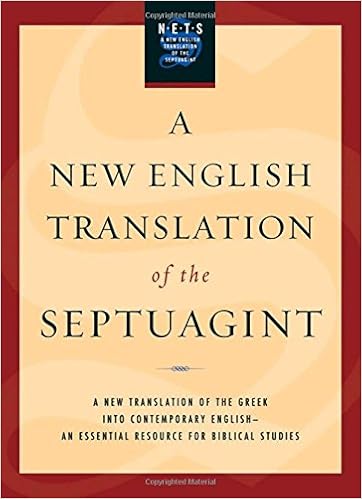


Feminist ideology has seeped into every aspect of our society. This book is a sobering true story of tragedy, suicide, and murder directly caused by feminism. It not only chronicles true stories that show feminism's discrimination against men, it's backed by peer-reviewed research. Additionally, it includes investigative journalism that proves feminism was never about equality. The reality is that feminism doesn't just victimize men. It also victimizes women, children, families, and communities.
from the kindle version of the book
Fun Fact: In 1910, Blacks made up about 15% of the American population, at the time of this writing, it's under to 13%. Put another way, in just over 100 years since Planned Parenthood started killing unborn African American children, the 2% nationwide population reduction represents close to a 12% decrease of the number of African Americans in the United States.
Lewis, Bob. The Feminist Lie: It Was Never About Equality (p. 25). UNKNOWN. Kindle Edition.

Feminist ideology has seeped into every aspect of our society. This book is a sobering true story of tragedy, suicide, and murder directly caused by feminism. It not only chronicles true stories that show feminism's discrimination against men, it's backed by peer-reviewed research. Additionally, it includes investigative journalism that proves feminism was never about equality. The reality is that feminism doesn't just victimize men. It also victimizes women, children, families, and communities.
the smoking gun
When feminists try to paint their history as one of strong independent heroines overcoming the mythical patriarchy, remind them that Sanger's and Steinem's success was only possible on the shoulders of wealthy corporate sugar daddies and white knights. Simply put, they were only successful because of corporate welfare. More importantly, if you look at almost every modern rich feminist, they follow the same template: get some rich sugar-daddy or organization to bankroll them with the corporate welfare necessary to subsidize their success, then claim they did it themselves while denying the existence of the welfare they received.
Lewis, Bob. The Feminist Lie: It Was Never About Equality (p. 37). UNKNOWN. Kindle Edition.

